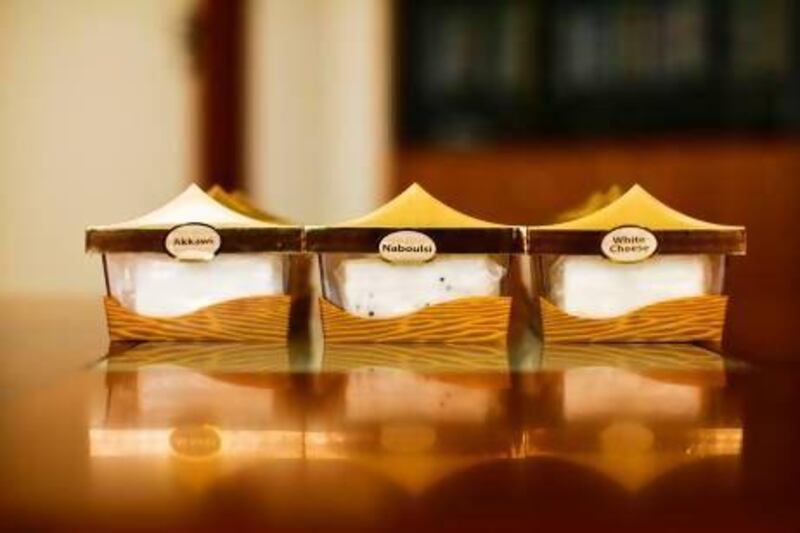DUBAI // As the UAE prepares to start shipping camel milk to Europe, it is already eyeing the huge US market.
After five years, Camelicious, owned by the Emirates Industry for Camel Milk and Products, received EU approval last month to export its products there.
Shipping will begin on April 1, first with camel-milk powder for use in cosmetics and medicines.
"Our first shipment of camel-milk powder will be in April," said Mutasher Al Badry, Camelicious's deputy general manager.
"We made a lot of efforts and I'm confident this will open more doors to other markets. Our next plan is to start with the US market, to be registered at the Food and Drug Administration."
The company will start by exporting a tonne of powder a month to a cosmetics company in France, which will make lotions and creams. Another 1,200 kilograms will go to a large pharmaceutical company, which plans on using the powder for medicine.
"One of the products is for the H. pylori infection [a stomach bacterium] and one is a cream for acne treatment."
Camelicious plans to work with a European university to research the potential of camel milk to aid the immune system and help treat cancer.
"We will also work to isolate its insulin because it's good for type-two diabetes," Mr Al Badry said.
The company also intends to distribute its chocolate, Al Nassma, all over Europe.
"We will start targeting the duty frees and the big, high-end department stores like Harrods," Mr Al Badry said.
Last year, 10 tonnes of powder were shipped to Austria to manufacture 35 tonnes of chocolate. But it had to be sent back to the UAE because the company was not licensed to sell the chocolate in Europe.
Production of the powdered milk for chocolate is set to increase, from the current 10 tonnes a year to 15 tonnes - but that will still not be enough to meet the demand sparked by the European approval, in countries including Australia, Japan, the US and Canada.
"We've already got a request from Canada for 500 tonnes of camel-milk powder," said Dr Ulrich Wernery, the director of Dubai's Central Veterinary Research Laboratory, which owns Camelicious.
"Since the war in Somalia, 30,000 Somalis migrated to Canada and they all want to drink camel milk."
The markets in Canada, the US and Singapore are "huge".
The company also expects to receive approval for shipments to Malaysia in the next two months, and South Africa shortly after.
But the question remains whether the company will be able to produce much more camel milk.
"We're thinking of having a new camel dairy farm which produces only powder and a small plant to package it," he said. "It's all possible and I hope other countries like Saudi Arabia, Qatar and Oman will follow because there's a lot of potential since the market is open."
In the meantime, the farm plans to increase its herd of 3,000 camels to 6,000 in the next two years and to 9,000 within three years.
Camelicious also plans to add high-capacity drying machines to increase powder production from 1.5 tonnes a month to 6 tonnes.
By the end of this year it hopes to start shipping camel-milk cheese to Europe.
"We're also thinking of making a product maybe for instant milk powder in sachets but it's not confirmed yet," said Mr Al Badry.
The next challenge is to work out how to package the products to European standards - and tastes.
"We are consulting our marketing agency at the moment."






